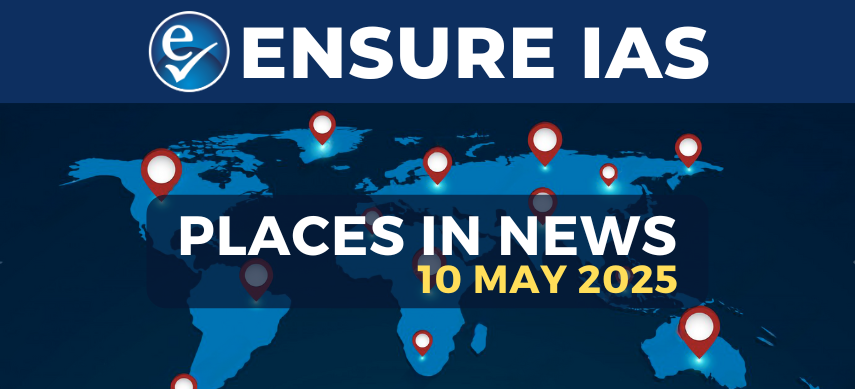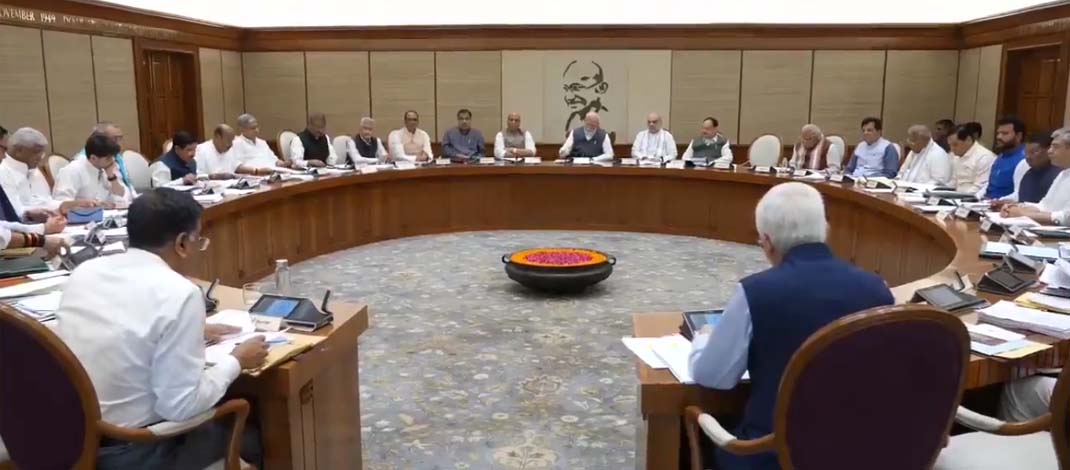- Courses
- GS Full Course 1 Year
- GS Full Course 2 Year
- GS Full Course 3 Year
- GS Full Course Till Selection
- Online Program
- GS Recorded Course
- NCERT (Recorded 500+ Hours)
- Polity Recorded Course
- Geography Recorded Course
- Economy Recorded Course
- AMAC Recorded Course
- Modern India, Post Independence & World History
- Environment Recoded Course
- Governance Recoded Course
- Science & Tech. Recoded Course
- International Relations and Internal Security Recorded Course
- Disaster Management Module Course
- Ethics Recoded Course
- Essay Recoded Course
- Current Affairs Recoded Course
- CSAT
- 5 LAYERED ARJUNA Mentorship
- Public Administration Optional
- ABOUT US
- OUR TOPPERS
- TEST SERIES
- FREE STUDY MATERIAL
- VIDEOS
- CONTACT US
Solar Energy Corporation of India (SECI) and the Adani Bribery Allegations
Solar Energy Corporation of India (SECI) and the Adani Bribery Allegations
26-11-2024
- The Solar Energy Corporation of India (SECI), a government-owned company under the Ministry of New and Renewable Energy, has quickly become a key player in India's renewable energy sector.
- However, In November 2024, bribery allegations involving SECI and major energy companies, including Adani Green Energy and Azure Power Global, have raised concerns about corruption and fairness in India's renewable energy market.
1. SECI’s Role in India’s Renewable Energy Sector
- Established in 2011: SECI was created as part of India’s efforts to boost renewable energy.
- It acts as the main agency for solar energy development, helping India to meet its renewable energy goals.
- Impressive Growth: SECI has grown from handling just 0.75 GW of renewable energy in 2014-15 to managing 65.3 GW now.
- Over 60% of this energy capacity, around 40 GW, is solar power.
- The rest includes 16.3 GW of wind power and 9 GW of hybrid (solar and wind) projects.
- Significant Market Influence: SECI is in charge of competitive bidding, power purchase agreements (PPAs), and power sale agreements (PSAs) with distribution companies (DISCOMs).
- This has made it a key player in India’s renewable energy market.
2. SECI’s Business Model
- Procurement and Trading of Renewable Energy: SECI is India’s largest agency for trading renewable energy.
- It buys energy from developers chosen through competitive bidding and sells it to DISCOMs through long-term PPAs and PSAs.
- Energy Traded: Last year, SECI traded about 43,000 million units of renewable energy, showing its major role in India’s energy market.
- Focus on Solar and Manufacturing: Recently, SECI has promoted combining solar power generation with manufacturing by awarding projects that link solar energy production to making solar panels and cells in India.
3. Controversy and Bribery Allegations Involving SECI
- Background of the Allegations: SECI has been accused of being involved in a bribery scandal related to a 2019 project where SECI awarded 15 GW of renewable energy contracts:
- 12 GW for solar power generation
- 3 GW for manufacturing solar panels
- The accusations suggest that bribes were paid to get state-level agreements for these projects.
- The U.S. Department of Justice (DOJ) claims Adani Green Energy and Azure Power Global paid over $250 million in bribes to Indian officials to help secure agreements with state governments for buying renewable energy.
4. Details of the Allegations
- Adani Green Energy’s Role: Adani Green Energy was given the world’s largest solar project of 8 GW, worth $6 billion, and was also required to build 2 GW of solar cell and panel manufacturing capacity in India.
- However, SECI struggled to find buyers for the energy produced, causing delays.
- The allegations suggest bribes were paid to officials in Andhra Pradesh, Odisha, Chhattisgarh, and Tamil Nadu to speed up Power Sale Agreements (PSAs).
- Azure Power Global’s Role: Azure Power got a 2 GW solar project and a requirement to manufacture 500 MW of solar cells and modules.
- Like Adani, Azure faced problems finalizing energy purchase agreements with state DISCOMs, leading to allegations of bribes to push for quicker agreements.
- Personal Allegations Against Gautam Adani: The U.S. Justice Department also pointed to Gautam Adani, the chairman of Adani Group, claiming he personally met Andhra Pradesh officials and offered bribes to secure these agreements.
- This has attracted significant attention, given Adani’s position in the business world.
5. SECI’s Response to the Allegations
- Denial of Wrongdoing: SECI has strongly denied any involvement in the bribery.
- The company’s Chairman, RP Gupta, stated that there is no evidence linking SECI to the bribery scandal, and SECI is committed to maintaining honesty and transparency in its operations.
- Investigations Underway: Despite SECI’s defense, investigations by the U.S. Justice Department and Indian authorities are still ongoing.
- The results of these investigations could have major consequences for SECI, Adani Group, and other players in India’s renewable energy sector.
6. Impact on India’s Renewable Energy Sector
- Potential Setback for Solar Energy: If the bribery allegations are proven true, they could harm India’s renewable energy sector, which has made great progress in the last decade.
- It could reduce investor confidence and make it harder for India to reach its renewable energy targets.
- Impact on SECI’s Role: SECI is a key part of India’s renewable energy market, so any damage to its reputation could affect future bidding processes, project approvals, and overall trust in India’s energy transition efforts.
- Increased Scrutiny: The controversy has led to calls for stricter rules and more transparency in how renewable energy contracts are awarded. There may also be a push for closer monitoring of large projects linking energy production with manufacturing to prevent future corruption.
Conclusion
SECI has played a key role in advancing India’s renewable energy goals, especially in solar power. However, the recent bribery scandal involving major developers like Adani Green Energy and Azure Power has brought SECI under scrutiny. The outcome of the ongoing investigations will impact the credibility of India’s renewable energy sector, which is a major part of the country’s sustainable development plan.



